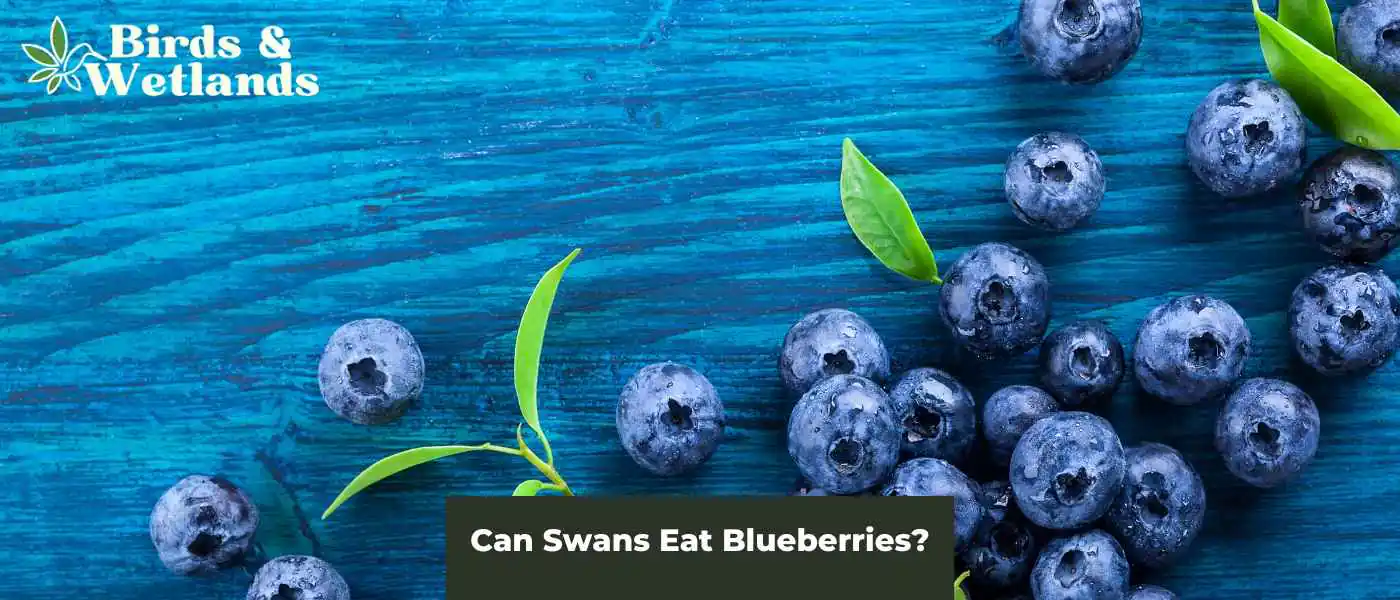We all know that swans are graceful and majestic creatures that glide effortlessly on the water. But have you ever wondered what these elegant birds eat?
While swans are known to munch on aquatic plants, there has been some debate about whether they can eat blueberries.
So, can swans actually add blueberries to their diet?
Yes, swans can eat blueberries as an occasional treat. Blueberries are a good source of vitamins, minerals, and antioxidants, making them a nutritious snack for swans. Ensure that the blueberries are ripe and clean, and offer them in moderation.
Key Takeaways on Feeding Swans
- While swans primarily eat aquatic vegetation, they are capable of consuming a wide range of foods, including insects, small fish, and grains.
- Blueberries are a nutritious fruit that are high in antioxidants, fiber, and vitamins, and they are generally safe for human consumption.
- Swans have a unique digestive system that allows them to process tough plant material, but they may not be able to digest certain foods, including those that are high in sugar or fat.
- Feeding swans should be done with caution, as providing them with an unbalanced diet can lead to health problems. If you want to feed swans, it is best to stick to small amounts of appropriate foods, such as whole grains or chopped vegetables.
Do swans like blueberries?
Blueberries are a sweet and juicy fruit known for their tangy and slightly tart taste. They are a popular ingredient in many dishes, including pies, jams, and smoothies.
Blueberries are also packed with nutrients and antioxidants, making them a healthy addition to any diet.
Swans are known for their herbivorous diet, consisting mainly of aquatic plants. While swans eat blueberries, it is not a common occurrence. Not all swans may enjoy the taste of blueberries, and their preference for plants may lead them to ignore the fruit.
Additionally, blueberries are not a natural food source for swans in the wild, and they may need help finding them. Therefore, while blueberries may be safe for swans, they are unlikely to be a preferred food choice.
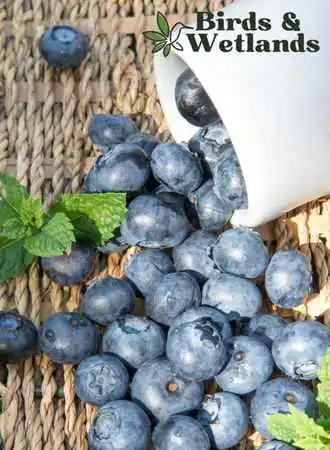
Can baby swans eat blueberries?
Blueberries are a type of fruit known for their high acidity levels. The acidity in blueberries comes from the presence of organic acids such as malic acid, citric acid, and quinic acid. These acids give blueberries their tangy and slightly tart taste, but they can also be harsh on the digestive system.
The digestive system of a baby swan, also known as a cygnet, is still developing and may not be able to handle the acidity levels found in acidic food such as blueberries.
Consuming acidic fruits such as blueberries could cause digestive discomfort for a young swan, including stomach upset or diarrhea. These conditions can lead to poor growth and development and impact their overall health.
Young swans need to have a diet rich in nutrients and easy to digest. This diet includes a variety of aquatic plants, grasses, and insects. These foods provide the necessary energy and nutrition for proper growth and development.
As they grow and their digestive system matures, they may be able to tolerate small amounts of fruits, but it’s better to be cautious and avoid acidic fruits like blueberries.
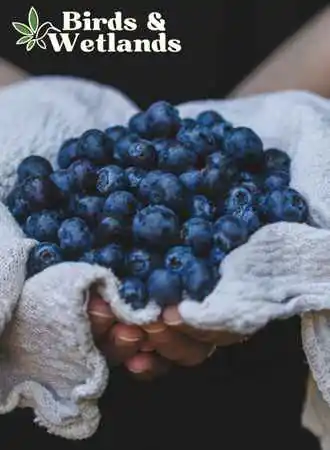
Are blueberries healthier for swans than bread?
Blueberries are a nutrient-rich fruit that can provide various health and nutritional benefits for swans.
However, since the swans’ diet mainly consists of aquatic plants and insects, the benefits of blueberries are less essential for them than for other animals.
Some potential health benefits of blueberries for swans include:
- Antioxidant properties — Blueberries contain a significant amount of antioxidants, which play a vital role in defending cells from harm caused by unstable molecules known as free radicals. This can lead to a lower risk of chronic diseases and a stronger immune system.
- Vitamin C — Blueberries are also a good source of vitamin C, which is important for the growth and repair of tissues. It also helps boost the immune system and keeps the skin, bones, and blood vessels healthy.
- Fiber — Blueberries are a good source of dietary fiber, which can aid in digestion and help prevent constipation.
- Anti-inflammatory properties — Blueberries contain anti-inflammatory compounds, which can help reduce inflammation in the body.
However, as aforementioned, it’s important to note that swans’ diet primarily consists of aquatic plants and insects. Therefore, young and adult swans don’t need to consume blueberries to maintain a healthy diet.
While swans eat bread, it’s not the healthiest option for them. Feeding bread, salty foods, cakes, cookies and other sugary foods do more harm than good for swans.
When people feed swans bread, they may experience health problems and tend to overeat. Keep in mind, predators eat swans and if they are weak and too heavy to fly, they may not survive.
Bread doesn’t provide much nutritional value so instead of feeding them bread, you can feed them lettuce, carrots and other vegetables. Some swans eat fruit so it is also a healthier option for them and some fruits are among the list of permitted foods for swans.
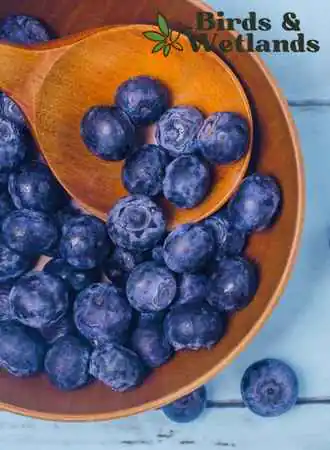
How often can swans eat blue berries?
Swans can eat blueberries as an occasional treat, once or twice a week.
How to serve blueberries to swans
While blueberries are not part of a swan’s natural diet, they are healthier than other foods that people normally feed swans at city parks and local ponds.
If you enjoy feeding swans, here’s how to serve them blueberries:
- Wash the blueberries properly with water to remove dirt, dust and other chemicals on the skin of the fruits.
- Cut this nutritious food into small bite-sized pieces, either halved or quartered.
- Swans will eat almost anything you give them so mix it up. Mix blueberries with other foods such as raw potatoes, carrots and leafy greens.
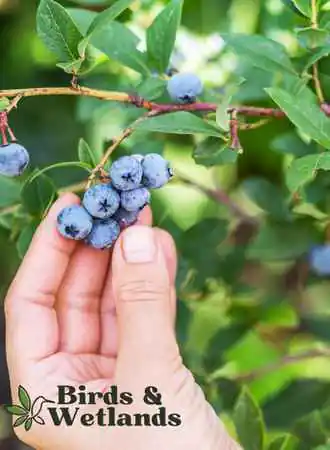
Related Questions on What Food Do Swans Eat and Their Behavior
What kinds of foods do swans eat in the wild?
There are three swan species living in North America. These swans are the trumpeter swan, mute swan and tundra swan. The whooper swan is a regular visitor in Alaska while the black swan and black-necked swan are not natives on the continent.
With regard to food, almost all swans eat the same foods. Most swans are primarily herbivores, meaning they feed on plant-based foods. They also drink freshwater where they forage food. They eat food about 20% to 25% of their total body weight.
Many swans supplement their plant matter diet with small animals. Swans eat fish but they prefer small fish since they don’t have teeth to chew on large fish. Tiny fish is a good source of protein, fatty acids and other minerals.
Swans eat insects too. Small insects found on land and in shallow water are among their favorite foods.
Cygnets begin to find food on their own a few weeks after hatching. They mostly do light up-ending with their long necks and eating food using their serrated beaks.
The diet of swans is affected by migratory patterns and availability of foods. They eat more plants in the winter months than they do in the summer.
Do swans mate for life?
Swans, which are members of the genus Cygnus, are known for their strong pair bonds and often mate for life. Once they find a mate, they typically stay together for the duration of their lives unless one of the pair dies or is otherwise separated.
The courtship rituals of swans before the breeding season can be quite elaborate, with males and females performing various displays to attract a mate. Once a pair has formed, they establish a territory and defend it against other swans.
The bond between swans is quite strong and often lasts for many years. Some swans have been known to stay together for over 20 years.
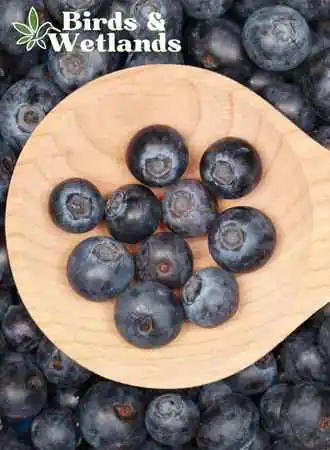
Other Foods for Swans
| Blueberries | Do Swans Enjoy Blueberries? |
| Apples | Are Apples Safe for Swans? |
| Grapes | Grapes and Swans: A Good Combo? |
Best Waterfowl Feed
Delightful Feeding Experience
Transform your backyard into a scenic waterfowl habitat and enjoy an interactive feeding experience with Natural Waterscapes Waterfowl Floating Food.

Pros
- Nutritious Food: Natural Waterscapes Waterfowl Floating Food is specifically designed to provide essential nutrients to waterfowl, including swans, geese, and ducks, helping them maintain a healthy diet.
- Convenient: The food comes in resealable packaging, making it easy to store and use as needed. It is also easy to handle and transport.
- Floating Formula: The floating formula of the food allows it to remain on the surface of the water, making it easier for waterfowl to eat and minimizing the risk of water contamination.
- Attracts Waterfowl: The food is formulated to attract various waterfowl species, including swans, geese, and ducks, to your pond, lake, or other water body, providing an opportunity to observe and enjoy these beautiful creatures.
- Environmentally Friendly: Natural Waterscapes Waterfowl Floating Food is made with environmentally friendly ingredients and does not contain any harmful preservatives, making it safe for both waterfowl and the environment.
Cons
- Shelf Life: The food’s shelf life may be limited compared to other types of waterfowl food due to its natural ingredients and lack of preservatives. This means you may need to use it up quickly after opening the package to prevent it from going bad.

